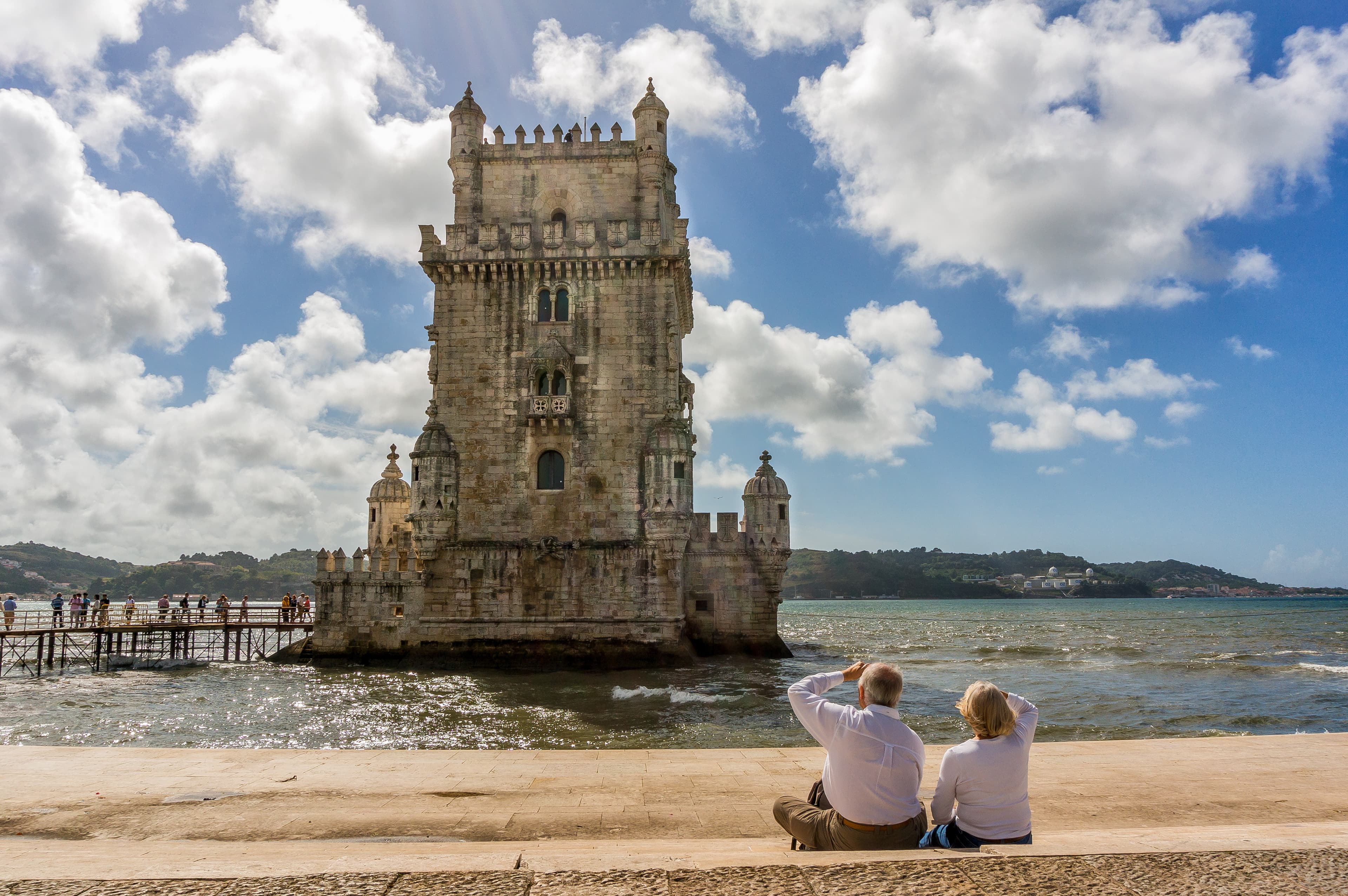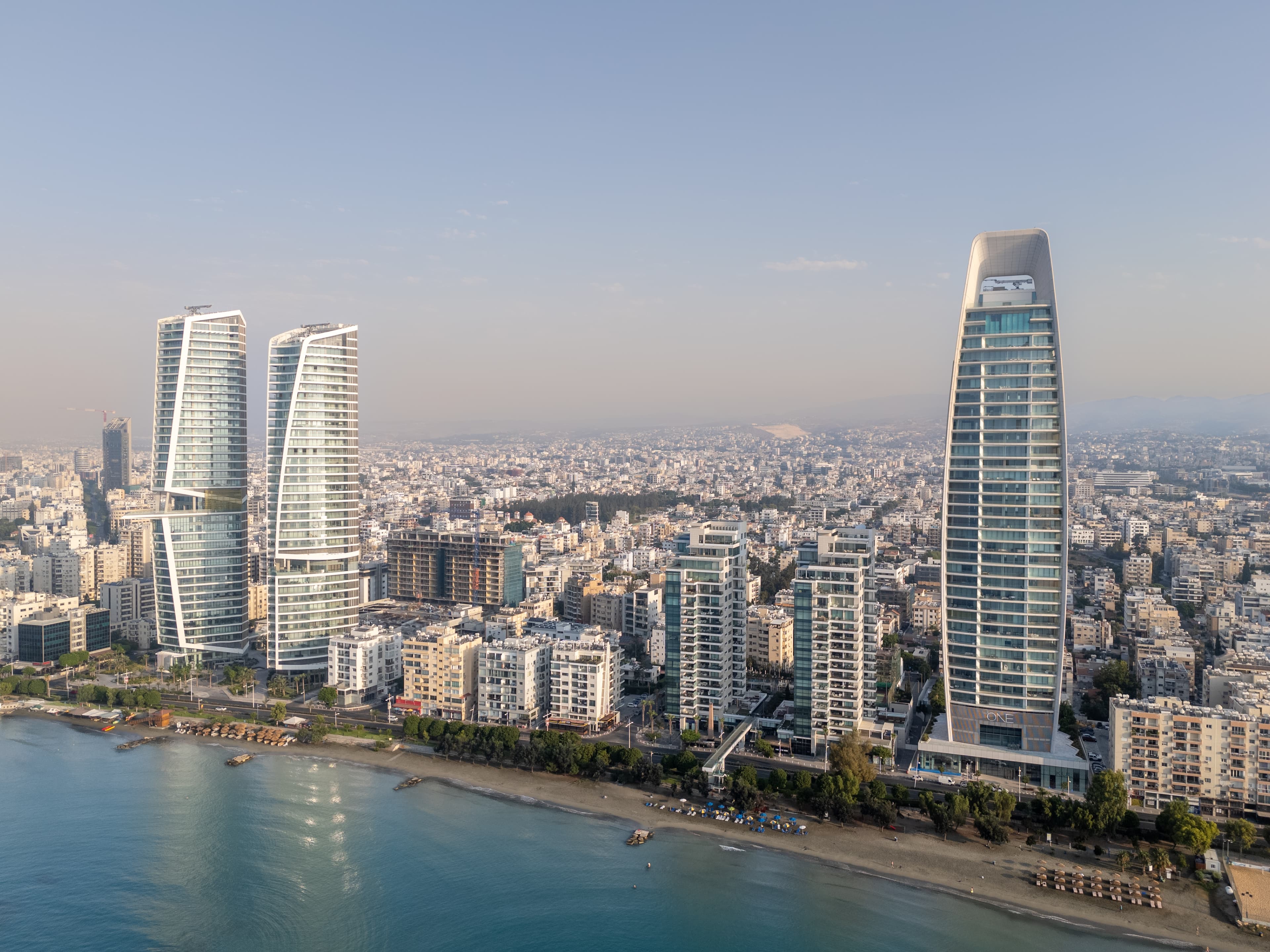Summary
Residence and domicile are often confused, yet they carry distinct meanings. In short, the difference lies in permanence and intent. Residence typically involves a temporary stay, while domicile refers to a permanent home.
Domicile and residency concepts influence tax obligations, legal rights, and long-term commitments.
In this article, we unpack these crucial distinctions and highlight seven countries where you can obtain non-dom status.
Understanding the terms of residence and domicile
Understanding the difference between residence and domicile is essential for anyone planning an international move, as these terms have distinct legal and tax implications that can affect long-term obligations and personal planning.
Residence
Residence is the legal status allowing a person to live in a country or jurisdiction for an extended period, often for work, study, or personal reasons. In some countries, residence can also be obtained by investment.
Residence grants the right to live, work, and sometimes access public services. However, it does not provide the full rights of citizenship, such as voting or obtaining a passport from the country.
Domicile
Domicile is the legal concept that represents a person’s permanent home or primary place of residence. It is often tied to where an individual intends to return or reside indefinitely, regardless of where they may be temporarily living or working.
Unlike residence, domicile carries a lasting quality and is more challenging to change. It also has significant tax and legal implications, often determining liability for inheritance taxes or worldwide income taxation.
Key differences between residence and domicile
Legal aspects of residence: rights, obligations, and taxes
Residence status shapes not only how long a person can stay in a country but also what rights, responsibilities, and tax obligations they hold, making it a key element of international mobility and long-term planning.
Types of residence
There are different types of residence an individual can get:
- temporary residence;
- permanent residence;
- tax residency.
Temporary residence allows a person to stay in a country for a limited period, often based on specific activities like work or study. For example, students typically receive residency for the duration of their studies. Temporary residence may lead to permanent residence if conditions are met.
Permanent residence grants a person the right to live in a country indefinitely, with fewer restrictions than temporary residence. Some countries may require a card renewal every few years, but permanent residents usually have full access to work opportunities and most local benefits.
Tax residency is the status that determines which country has the right to tax an individual on their global income. Living in a country for 183 days or more in a year typically triggers tax residency, subjecting the individual to that country’s tax laws.
Residents’ rights
Residency often grants access to healthcare, education, and public benefits within the country. Holders of certain residence permits are also allowed to work or establish business in the country. Employment limitations often apply to such residents as students or digital nomads.
With residency, individuals can move freely within the country’s borders. In some cases, residents can travel to neighbouring countries, such as EU residents who can visit other EU member states.
Some countries also grant residents limited political rights, like voting in local elections. For example, in Switzerland, foreign nationals can participate in certain cantonal and communal elections. Similar rules work in the Netherlands, Belgium, and Ireland. Portugal and Spain allow residents of specific nationalities to vote at a municipal level.
Obligations of residents
Foreigners must follow local laws and regulations, as criminal offences may result in deportation.
Residents are required to comply with obligations like renewing permits on time and spending the minimum number of days in the country, which depends on the permit type and the country’s rules. For example, the Portugal Golden Visa requires only 7 days of stay in the first year and 14 days every two subsequent years, while holders of most other permits must reside in the country for at least 183 days per year.
In many countries, residency status comes with specific tax obligations.
Tax implications
Residents must file a tax return on their local and, sometimes, global income.
Residency-based tax systems typically impose taxes on income earned both within and outside the country, depending on the resident’s status and duration of stay. For instance, many jurisdictions consider an individual a tax resident if they reside in the country for over 183 days in a year, triggering obligations on global income.
Certain countries also apply wealth or property taxes, requiring residents to declare foreign assets and pay taxes accordingly. This can include taxes on investments, real estate, and other holdings that may be located abroad.
Common ways to get residence abroad
Obtaining residence abroad can be achieved through a wide range of legal pathways. Each option is designed to meet different personal, family, or professional goals. Common routes include employment, remote work, business, study, family reunification, medical treatment, and retirement.
Employment
Work-based residence permits allow foreign nationals to live and work in a country based on a valid job offer. These permits are typically granted to those with specialised skills, qualifications, or expertise required by the host country’s labour market.
An example of such a permit is the EU Blue Card, issued to highly skilled non-EU professionals.
The duration of the permit often aligns with the employment contract, commonly ranging from one to three years, and is usually renewable as long as employment continues.
Remote work
Digital nomad visas are created for remote workers employed by foreign companies. Applicants must demonstrate stable income from outside the host country and may be required to meet a minimum earnings threshold.
These visas are usually valid for up to several years, with the option to renew if criteria continue to be met. For example, the Spain Digital Nomad Visa is a 3-year residence permit extendable for two more years.
Doing business
Entrepreneur permits are designed for those who wish to establish or run a business in the country. Applicants must provide a business plan, have sufficient capital, and demonstrate potential economic impact.
Residency is typically granted for one to three years, with the possibility of renewal if the business remains active and meets economic goals.
Hungary grants residency by business registration to foreign nationals who open a company in the country with a capital of at least €7,700. This residence permit is valid for one year and can be extended for two years.
Family reunification
Family-based permits are issued for family reunification or recently married couples. Eligible family members can include spouses, minor children, or dependent parents.
This permit type often allows residence for one to two years initially, with the option for renewal. Requirements include proof of relationship and financial means to support dependents.
Studying
Study-based residence permits are available for international students enrolled in an accredited program at a local educational institution. It is generally issued for the duration of the study program, with a maximum term of four years.
Students are often allowed to work up to 20 hours per week during the academic year and full-time during breaks, though work hours may vary by country.
Seeking medical treatment
Medical permits are granted to individuals undergoing long-term medical treatment within the country. Applicants must provide medical documentation and proof of funds to cover treatment and living expenses.
The permit validity is typically aligned with the expected duration of treatment. Renewal is possible if additional treatment time is required.
Retiring or moving as a financially independent person
Residence permits for financially independent persons are tailored for individuals with passive income, such as pensions or investments, who do not require employment in the host country. Applicants must prove sufficient funds to support themselves throughout their stay.
The Portugal D7 visa is designed for foreigners with the minimum passive income of €870 per month. The first permit is issued for two years, with the possibility of extending it. After five years of living in Portugal, residents are eligible to apply for citizenship.
Humanitarian reasons
Humanitarian residence permits support individuals seeking asylum or protection from persecution. Eligibility requirements often include proving a threat of persecution or harm in the home country.
The validity of such a permit depends on the country’s rules. For example, Finland issues permits to refugees for up to five years. Renewals depend on the circumstances and potential risks in the applicant’s country of origin.
Investment
Residence permits for investors, often referred to as Golden Visas, are available to individuals who make significant financial investments in the country’s economy. These investments can include real estate, government bonds, or business ventures. Eligibility requirements and investment amounts vary by country.
Residence permits for investors are generally granted for two to five years, with the opportunity for renewal as long as the investment is retained. One of the longest residence permits for investors is the Hungary Golden Visa valid for 10 years.
In some cases, investment permits may also offer a pathway to permanent residence. For example, investors can obtain permanent residency in Cyprus or Malta.
Detailed explanation of domicile
Domicile refers to a person’s primary, permanent home and is typically linked to where they intend to stay long-term.
Unlike residency, which can be short-term or subject to change, domicile has a more enduring quality and is often legally difficult to alter. It reflects not just where a person lives but where they ultimately plan to return, even if they are currently living elsewhere temporarily.
Types of domicile
There are several types of domicile:
- domicile of origin, which is typically acquired at birth and usually aligns with the parents’ domicile;
- domicile of choice, which is obtained by moving to a new country or location with the genuine intention of making it a permanent home;
- domicile of dependence, which applies to individuals who are legally dependent on others, such as minors and aligns with the domicile of their parents or legal guardians.
Changing domicile
Changing domicile usually requires both physical presence in the new location and a clear intention to make it a permanent home. Evidence of intention might include buying a property, moving family, or making long-term commitments.
Domicile is not automatically changed by simply spending significant time in a new country. For instance, if someone spends years working abroad but intends to return to their original country, their domicile may still be considered their home country.
Tax implications
In some countries, domicile affects tax obligations, including income, wealth, and inheritance tax. For instance, a person domiciled in the UK is liable for taxes on their global assets, while non-domiciled UK residents are taxed only on income and assets sourced within the country.
Domicile is recognised as a distinct legal concept in several countries, including the following:
- Australia;
- Canada;
- India;
- Ireland;
- Malta;
- New Zealand;
- South Africa;
- the United Kingdom;
- the United States.
Understanding the concept of domicile and its tax implications is essential for individuals who may want to optimise their global tax obligations, especially when maintaining significant foreign assets.
Top 7 countries offering a non-domicile status
Many countries offer special “non-domicile” or “non-dom” statuses, which allow new residency without changing domicile. This type of residency is designed to attract international residents by limiting their tax liabilities on worldwide income and is often available through investment.
1. Greece
Investors obtain a Greece Golden Visa by purchasing residential or commercial properties valued at €250,000 or more. Alternatively, they may lease tourist accommodations or enter into a timeshare agreement.
A residence permit is valid for 5 years with unlimited extensions; family members may join the application.
They can also qualify by investing €500,000 in local company capital, securities, government bonds, or bank deposits. For those interested in mutual or alternative investment funds, a minimum investment of €350,000 is required.
If foreigners become Greek tax residents, they pay a flat tax on their global income, which is €100,000.
2. Cyprus
Cyprus offers non-EU citizens an opportunity to obtain lifelong residency by investing at least €300,000 in real estate, shares of local companies, or units of Cypriot investment funds.
Cyprus imposes no taxes on global income or inheritance and maintains low property and income tax rates. Additionally, the corporate tax rate is among the lowest in Europe at 12.5%.
It is possible to get residency together with a spouse and children. The process takes at least 9 months. After 8 years of living in Cyprus, investors and their families become eligible for citizenship.
3. Andorra
Andorra grants residence permits to investors who contribute at least €600,000 in real estate, securities, or local business ventures.
Andorra has no wealth, inheritance, or capital gains taxes, and features a low corporate tax rate of 10%.
The Andorra permit is among the fastest in Europe, taking just two months to obtain. Investors’ family members are welcome to join.
4. Malta
Malta enables non-EU nationals to obtain lifelong residency by investment. A spouse, children under 29, and parents may get status together with the investor.
To qualify, investors must have €500,000 in available assets, including at least €150,000 of liquid financial assets, such as deposits, stocks or bonds. Another option is to demonstrate at least €650,000 of assets, including at least €75,000 of financial ones.
Applicants will also have other expenses:
- purchase or rental of real estate;
- administrative and state fees;
- donation to a charitable organisation.
The minimum expense when renting housing is €169,000; when purchasing a property, it is €474,000.
Malta offers a favourable tax structure with options like remittance-based taxation for residents and no inheritance or wealth taxes, making it an attractive base for international individuals and business owners.
5. Hungary
To qualify for the Hungary Golden Visa, investors buy real estate fund units or donate to an educational institution. The minimum investment is €250,000.
Participants and their family members obtain residence permits for 10 years and can renew them once for 10 more years.
Hungary boasts one of the lowest corporate tax rates in Europe, at 9%. The application process is efficient, typically taking at least 5 months. It does not require applicants to reside in Hungary to maintain their residency status, providing flexibility for those who wish to retain their domicile elsewhere.
6. Switzerland
Switzerland grants residence permits to financially independent people. To get a permit, there is no need to invest but foreigners must pay a lump-sum tax. For non-EU citizens, it ranges from ₣450,000 to ₣1,000,000, or approximately €480,000—1,065,000, per year.
Paying a lump-sum tax might be more beneficial than a tax on global income. However, the source country and Switzerland must have a Double Taxation Treaty.
7. Italy
Italy enables non-EU citizens to obtain legal residency by making a significant investment in the country. The minimum investment requirement starts at €250,000.
The program extends residency to the investor’s family, including a spouse, children of any age, and parents. Initially, investors receive a residence permit valid for two years, which can be extended for three-year periods.
Investors with an Italy Golden Visa get access to a special tax regime. Under this regime, new residents can opt to pay an annual flat tax of €200,000, exempting them from taxes on income generated outside Italy for up to 15 years.
How to obtain residency by investment and get a non-domicile status
To get a non-dom status, investors apply for residency abroad under a regular procedure. If they stay in their country for 183 days or more, their tax residency changes automatically while the domicile remains unchanged. Tax burden may differ for residents and non-residents, so it is advisable to study the rules prior to the application.
The period of obtaining residency depends on the country. For instance, it is at least 2 months for Andorra and at least 9 months for Cyprus. Typically, the process consists of 8 steps, but some nuances may vary by country.
1 day
Preliminary Due Diligence
A certified Compliance Anti Money Laundering Officer of Immigrant Invest conducts preliminary Due Diligence. They check international databases to see if there is a rejection risk. In case there are any issues, our lawyers will offer a solution.
The applicant only needs a passport. The check is completely confidential.
A certified Compliance Anti Money Laundering Officer of Immigrant Invest conducts preliminary Due Diligence. They check international databases to see if there is a rejection risk. In case there are any issues, our lawyers will offer a solution.
The applicant only needs a passport. The check is completely confidential.
2 weeks
Collecting documents
Immigrant Invest lawyers compile a list of required documents and help the investor prepare them. The lawyers compile the investor’s welfare history, translate documents into English, certify copies through a notary, and correctly fill out application forms.
Immigrant Invest lawyers compile a list of required documents and help the investor prepare them. The lawyers compile the investor’s welfare history, translate documents into English, certify copies through a notary, and correctly fill out application forms.
Up to 4 months
Getting a visa
After initial documentation is prepared, applicants must secure an entry visa to legally enter the target country. Normally, the visa is designed for temporary entry to fulfil the investment condition. For example, in Hungary, applicants are granted a 6-month Guest Investor Visa.
After initial documentation is prepared, applicants must secure an entry visa to legally enter the target country. Normally, the visa is designed for temporary entry to fulfil the investment condition. For example, in Hungary, applicants are granted a 6-month Guest Investor Visa.
Up to 8 months
Travelling to the country and fulfilling the investment condition
Upon arrival, the applicant proceeds to meet the specific investment criteria, such as purchasing real estate, investing in government bonds, or making a financial contribution.
Upon arrival, the applicant proceeds to meet the specific investment criteria, such as purchasing real estate, investing in government bonds, or making a financial contribution.
1 day
Applying for a residence permit
With the investment completed, the foreigner formally applies for a residence permit. This includes submitting proof of investment, personal identification, and other required documentation to the relevant immigration authority.
Investors do not always need to visit the country to apply. For instance, under the Cyprus permanent residence program, it is possible to submit the application remotely.
With the investment completed, the foreigner formally applies for a residence permit. This includes submitting proof of investment, personal identification, and other required documentation to the relevant immigration authority.
Investors do not always need to visit the country to apply. For instance, under the Cyprus permanent residence program, it is possible to submit the application remotely.
At least 1 day
Submitting biometrics
The investor visits the migration office to present their passport and original documents, submit biometrics, and have a photo taken for a residence permit card.
On this or previous stages, applicants might need to have an interview at the migration office or consulate.
The investor visits the migration office to present their passport and original documents, submit biometrics, and have a photo taken for a residence permit card.
On this or previous stages, applicants might need to have an interview at the migration office or consulate.
Up to 2 months
Getting the residence permit
The investor and their family members collect permits personally or through an authorised lawyer. Alternatively, permits can be sent by courier to a convenient address.
The investor and their family members collect permits personally or through an authorised lawyer. Alternatively, permits can be sent by courier to a convenient address.
After 2+ years
Extending the residence permit
To extend a permit, the investor must collect the same or similar set of documents as for the first time and maintain the investment asset. In Greece and Italy, it happens after 2 years; in Hungary, it is done after 10 years.
As for Cyprus and Malta, the investor does not need to extend a permit, as it is permanent. However, permanent residents in Cyprus need to update their residency cards every 10 years. In Malta, a resident must prove compliance with program conditions annually for the first 5 years and renew the residency card every 5 years.
To extend a permit, the investor must collect the same or similar set of documents as for the first time and maintain the investment asset. In Greece and Italy, it happens after 2 years; in Hungary, it is done after 10 years.
As for Cyprus and Malta, the investor does not need to extend a permit, as it is permanent. However, permanent residents in Cyprus need to update their residency cards every 10 years. In Malta, a resident must prove compliance with program conditions annually for the first 5 years and renew the residency card every 5 years.
Final reflections on comparing residency and domicile
-
Residency is a legal status for living in a country temporarily, while domicile is a permanent home where a person intends to reside indefinitely.
-
Country of residency and country of domicile affects an individual’s tax burden, specifically wealth, inheritance, and income tax.
-
Multiple countries offer residency-by-investment programs that help reduce tax burden without the need to change a domicile country. Examples include Greece, Italy, and Hungary.
-
To get a non-dom status, the applicant collects documents, fulfils an investment condition, and applies for a residence permit. The acquisition period starts at two months.
Immigrant Invest is a licensed agent for citizenship and residence by investment programs in the EU, the Caribbean, Asia, and the Middle East. Take advantage of our global 15-year expertise — schedule a meeting with our investment programs experts.
























